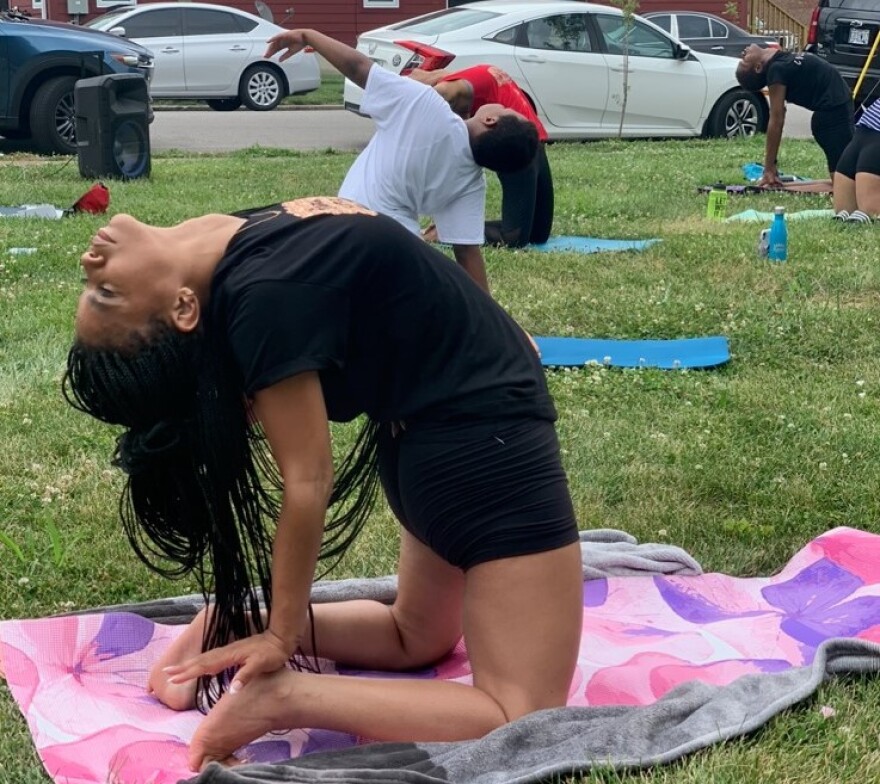Many Black St. Louisans are exhausted by the coronavirus pandemic and the fight to end systemic racism.
To help Black people manage mental and physical stress of troubled times, the Collective STL is offering the free five-week wellness series “Just Breathe STL” at the Missouri History Museum beginning Wednesday.
Black people need a space to breathe and release tension after seeing a Minneapolis police officer kill George Floyd and the many protests that have followed, said Ericka Harris, one of the Black-owned yoga studio's four owners.
“If you’re always having to gasp for breath whether that's because of health issues or racism, and that's a problem,” Harris said. “So it's important for us to breathe and have space to breathe because we need it just as much as everybody else, if not more.”
Harris and three other owners of the north St. Louis studio teach weekly yoga sessions that incorporate breathing and mindfulness techniques to help Black people recover from depression, work-related stress and racism.
“All of the societal things that we deal with can literally take your breath away,” Harris said. “Learning how to be even in high-stress moments or moments that are tense is very important because it can make all the difference in the world.”
The “Just Breathe STL” series will include yoga on the north lawn of the museum, meditation sessions, journaling, painting and children's activities.
St. Louis area outdoor groups like Black People Who Bike and Black People Who Hike will bike and walk through trails along Forest Park.
Wellness for African Americans starts outdoors, said Debbie Njai, founder of Black People Who Hike.
“We just really need to get back to our roots,” Njai said. “It’s almost like an oxymoron where we feel like outdoor spaces are white places, and I think it's time that we take action, and that’s with our help.”
She said her walk will focus on deep breathing while in the surrounding nature, which can help recharge the body and promote relaxation.
For decades, many Black people have been reluctant to explore the outdoors because doing so was off-limits during segregation, when white people threatened African Americans who explored such spaces.
For Njai, hiking is another form of activism, one that can help many members of the Black community grow more comfortable with the outdoors.
“We have other communities that are out there freely, and they've been doing this for centuries. And here we are with all these health issues, and we think that's the white thing to do,” she said.
Harris said the wellness fair is part of the social justice movement because “self-care for Black people is a social justice issue.”
“I think that health care is a social justice issue, so putting on events like this we are kind of combating a system that doesn't always include us,” Harris said. “And we're making space for people to find wellness in a society where their wellness is not always a concern.”
Follow Andrea on Twitter: @drebjournalist
Our priority is you. Support coverage that’s reliable, trustworthy and more essential than ever. Donate today.
Send questions and comments about this story to feedback@stlpublicradio.org



